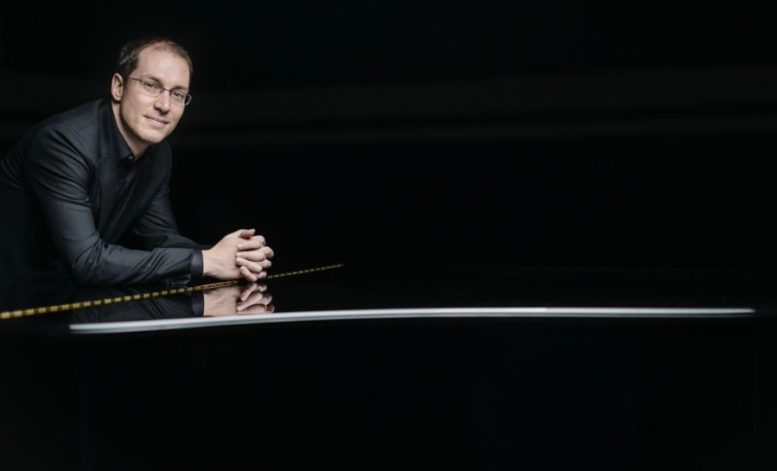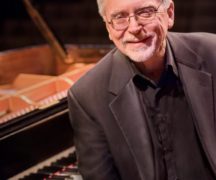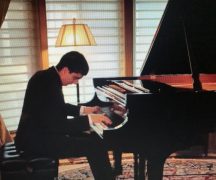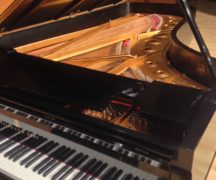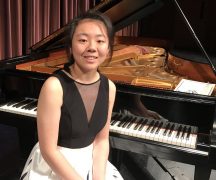By DAVID DUPONT
BG Independent News
Well into the second decade of his professional career as a classical pianist, Gilles Vonsattel is now ready to take on Beethoven’s daunting Opus 106, known as “Hammerklavier.”
When Vonsattel performs at Bowling Green State University Saturday, Feb. 3 as the guest artist for the David D. Dubois Piano Festival and Competition, he will perform “Hammerklavier” as part of an all-Beethoven program. This will be his first public performance of the sonata. Given its difficulties, he said, “it’s frightening.” The sonata is “a shocking piece. It’s always going to remain modern.”
Vonsattel will perform the free recital at 8 p.m. in Bryan Recital Hall.
As guest artist he will give a master class for BGSU piano students Friday, Feb. 2 at 7:30 p.m. in Bryan. On Sunday morning at 9 a.m. in Kobacker Hall he’ll be one of the judges for the finals of the Dubois competition, which has attracted a field of 24 teenage pianists from nine states and Canada.
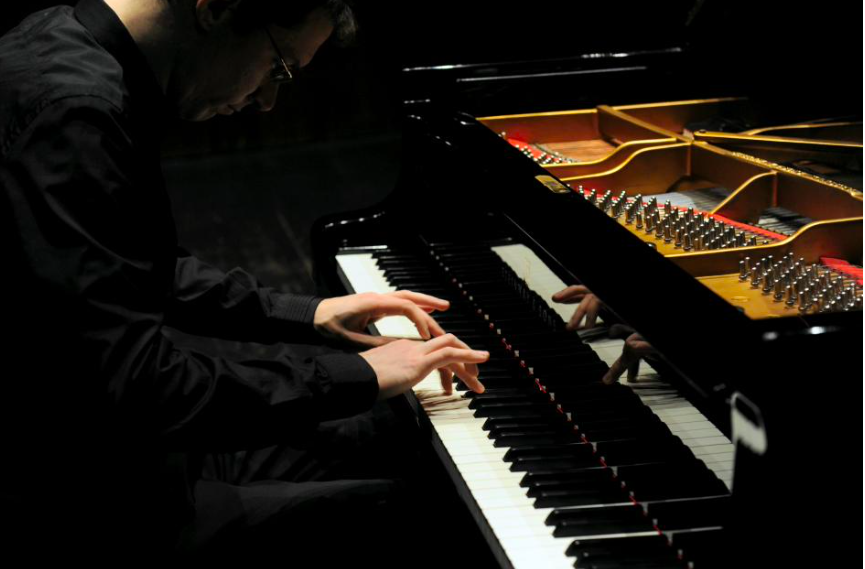
Vonsattel started learning the “Hammerklavier” in September. “There are some projects coming in a couple years that require it, and it’s a piece you don’t want to take lightly especially when you’re not in your 20s, and your muscle memory is different,” the 42-year-old pianist said. “I think if I’d have learned it in my 20s, I wouldn’t have had a clue as to what I was doing, but my fingers would have learned it faster. … I’ll have years ahead in my life of playing it. It’s something you have to gnaw on and digest. It’s been a great experience to work on it.”
The piece stands out from not just iBeethoven’s output, but also from all of classical piano literature. “It is so much more difficult and challenging on every level.” Performing it in public is “a big step.”
That holds true for listeners, Vonsattel said. He has played it in a few house concerts, and even the most sophisticated listeners need time to absorb it. “It is also intimidating for the listener. It was not meant to be easy to listen to,” he said. “It’s a piece of music that’s meant to be experienced again and again.”
On the first half of the program, Vonsattel will play two earlier Beethoven sonatas, one from his early period, Piano Sonata No. 12 in A♭ major, Op. 26, “Funeral March,” and the other from his middle period, Piano Sonata No. 23 in F minor, Op. 57 “Appassionata.”
Vonsattel started playing piano at a very young age. He did not, like so many of his peers, feel immediately that playing music was his destiny.
He loved it, but had other interests as well. He admits that in high school, he did not practice as much as he should have. He went to college in New York earning a bachelor’s degree in political science and economics from Columbia and studying music at Juilliard, where he earned his master’s degree.
“I had an amazing time at Juilliard,” Vonsattel said. That’s when he decided “I’m all in” and decided to see where a career in music would take him. “It’s crazy to try to be a musician,” he said, especially given he had some catching up to do.
“I did well in some competitions,” he said. “I became involved in chamber music. I played a lot of modern music and met a lot of amazing composers. I began to have a wide range of experiences of what being a classical pianist could be.”
Vonsattel focused on competitions that offered performance opportunities to the winners. Those included solo recitals, concertos, and chamber music. That led to a performing career on both sides of the Atlantic. Vonsattel is now a professor of piano at the University of Massachusetts Amherst and on the faculty at Bard College in New York.
In judging competitions, “you’re really looking to pick who you respond to the most, who is moving you and is convincing and who really has something to say, who’s an individual.”
It’s important, he said, as a judge “to get rid of any preconceptions and then you want to give everybody up there a really great chance. You want to be open and receptive and listen and stay really positive.” Vonsattel tells young musicians that “it is an incredible time in your life to be doing this.”
He urges them “ try to discover as much as possible. These are the years where there is this open landscape to discover and figure out how the music is put together. Put yourself in the shoes of the composer. That may mean becoming more comfortable with improvising. Then it becomes a creative act.”
And he has one specific piece of advice for them: “Stop using YouTube to make interpretive decisions.” He encounters this all the time, phrasing and timing copied from performances on YouTube. The technology makes it easy to go over a passage over and over again. He can tell when the ideas are taken from YouTube performances.
Not that YouTube is bad. “It’s a resource,” he said. A young pianist reaches what they perceive as a high level of mastery of a composition. Then the young musician views a master pianist, and they realize how much more work they have to do.
That work never ends. Vonsattel is on winter break from teaching, so he has been practicing six hours a day.
For the performer there’s a danger in being so intensely engaged in the music, they may forget what the casual listener experiences when they hear something such as “Hammerklavier.”
“When they first hear it, they won’t understand much,” he said. “I think that ability to commit to what we do yet remember what it’s like for people who experiencing it for the first time is very important.”
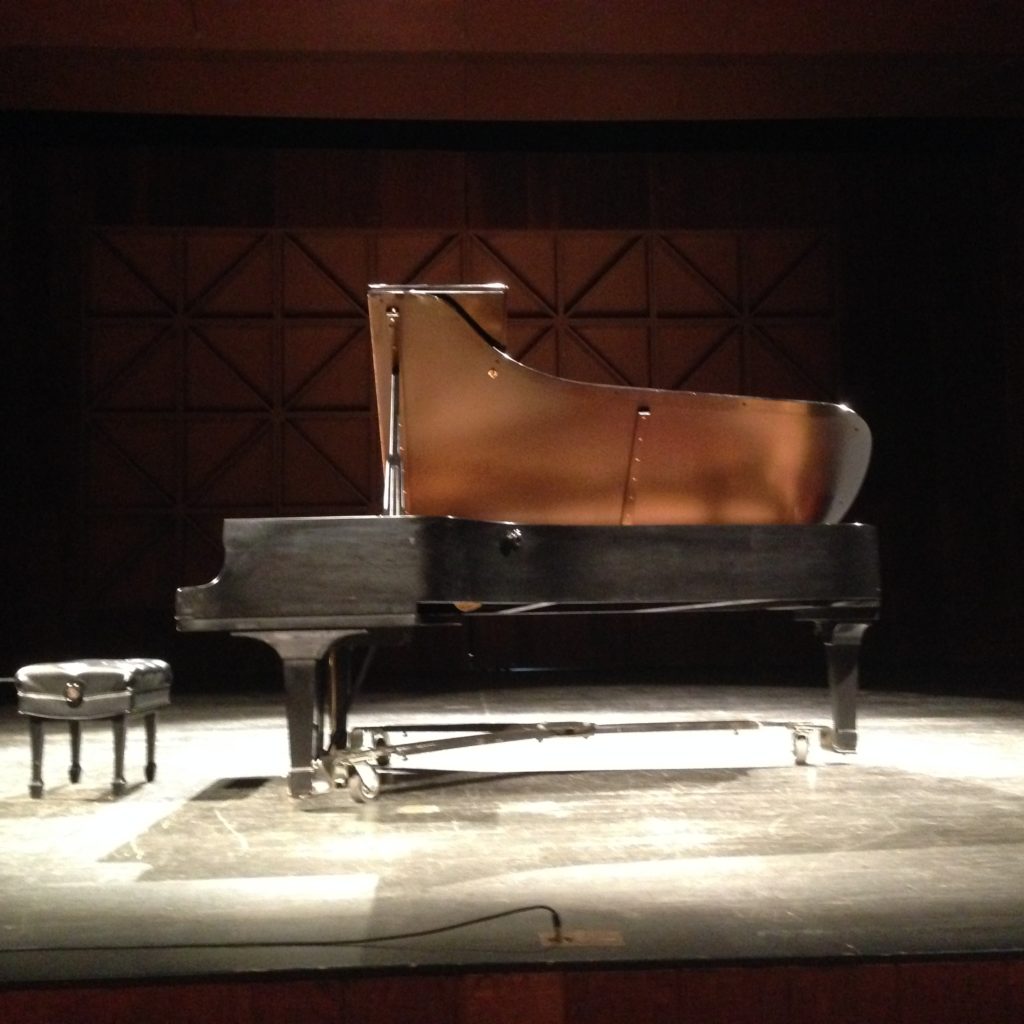
David D. Dubois Piano Competition semifinalists
The David D. Dubois Piano Festival and Competition is open to classically trained pianists in grades 8 through 12.
They are required to prepare a performance of 20-30 minutes in length that includes selections from at least three of the following style periods: Baroque, Classical, Romantic, Contemporary. One movement from a Classical sonata must be included.
Prizes are $3,000 for first place, $2,000 for second place, and $1,000 for third place. Scholarships to attend BGSU and Piano Camp at BGSU Summer Music Institute are also awarded to some participants.
The 2024 semifinalists are:
- Andrey Bakalov, Reynoldsburg, OH
- Xuan Huang, Ottawa Hills, OH
- Rosalyn Bao, Germantown, TN
- Josephine Yoo, New York, NY
- Sunny Rong, Canton, MI
- Zack Lam, Bethesda, MD
- Patrick Flythe, Gahanna, OH
- Levi Li, Powell, OH
- Erik Jacoby, New Albany, OH
- Ryan Lu, Englewood Cliffs, NJ
- Helena Kim, Wayne, NJ
- Katie Wang, Brentwood, TN
- Henry Shao, Sylvania, OH
- Ryan Li, Troy, MI
- Emma Yu, Dublin, OH
- Olivia Sexton, Frankfort, IL
- Evan Dan, Solon, OH
- James Carson, Brecksville, OH
- Benjamin Luo, Apex, NC
- Jason Shaye, Kalamazoo, MI
- Keliang Yao, Lebanon, OH
- Ella Kim, Herndon, VA
- Kaede Suzuki, Mason, OH
- Jarmin Weng, Vaughan, Ontario, Canada

